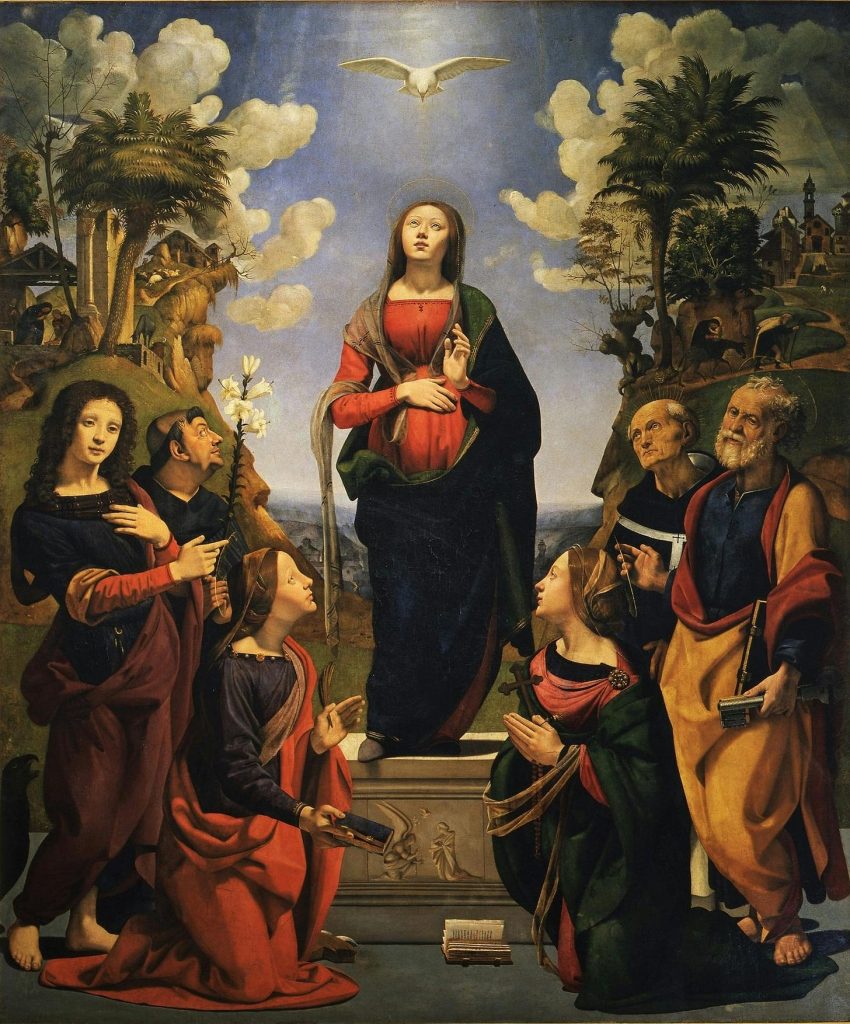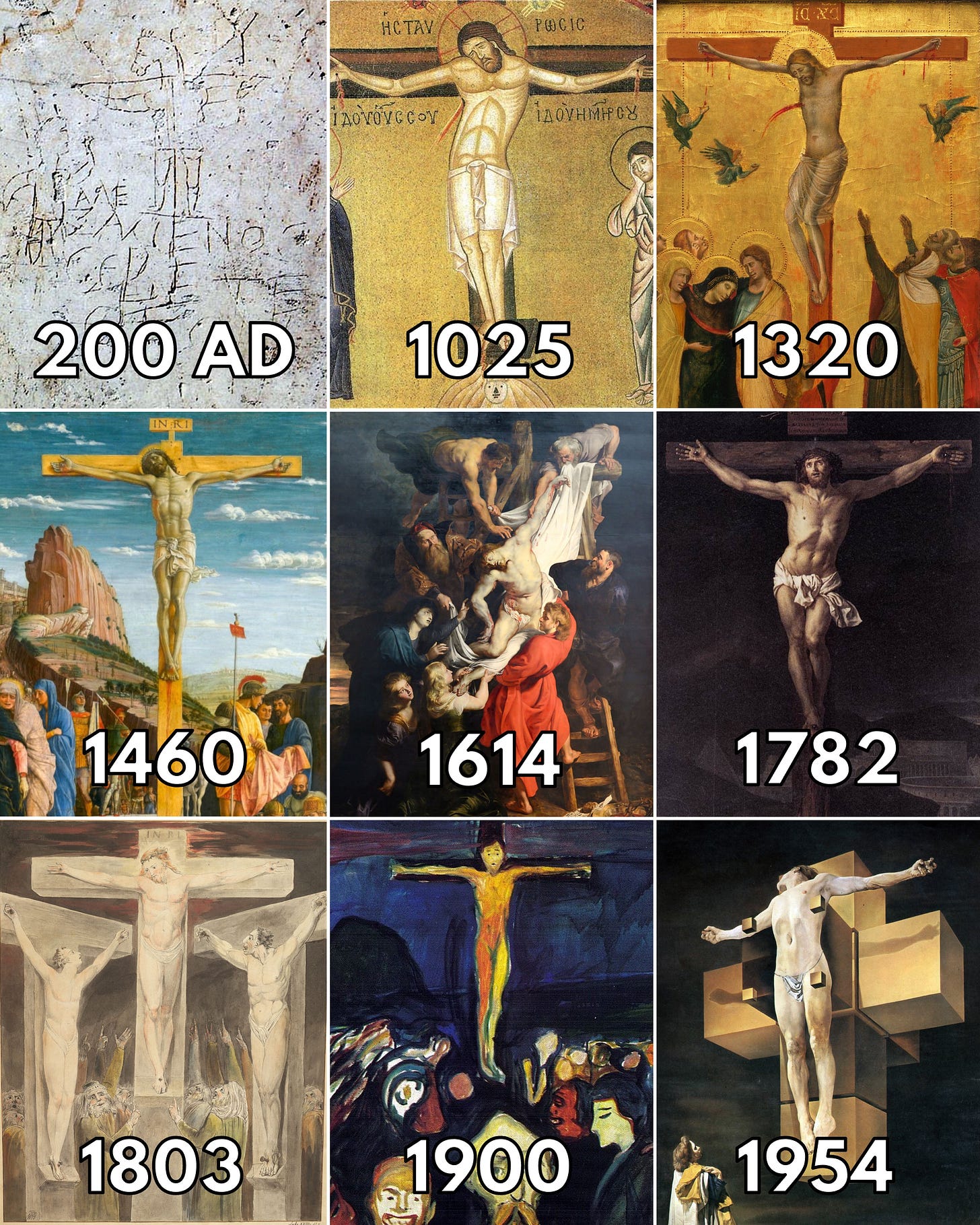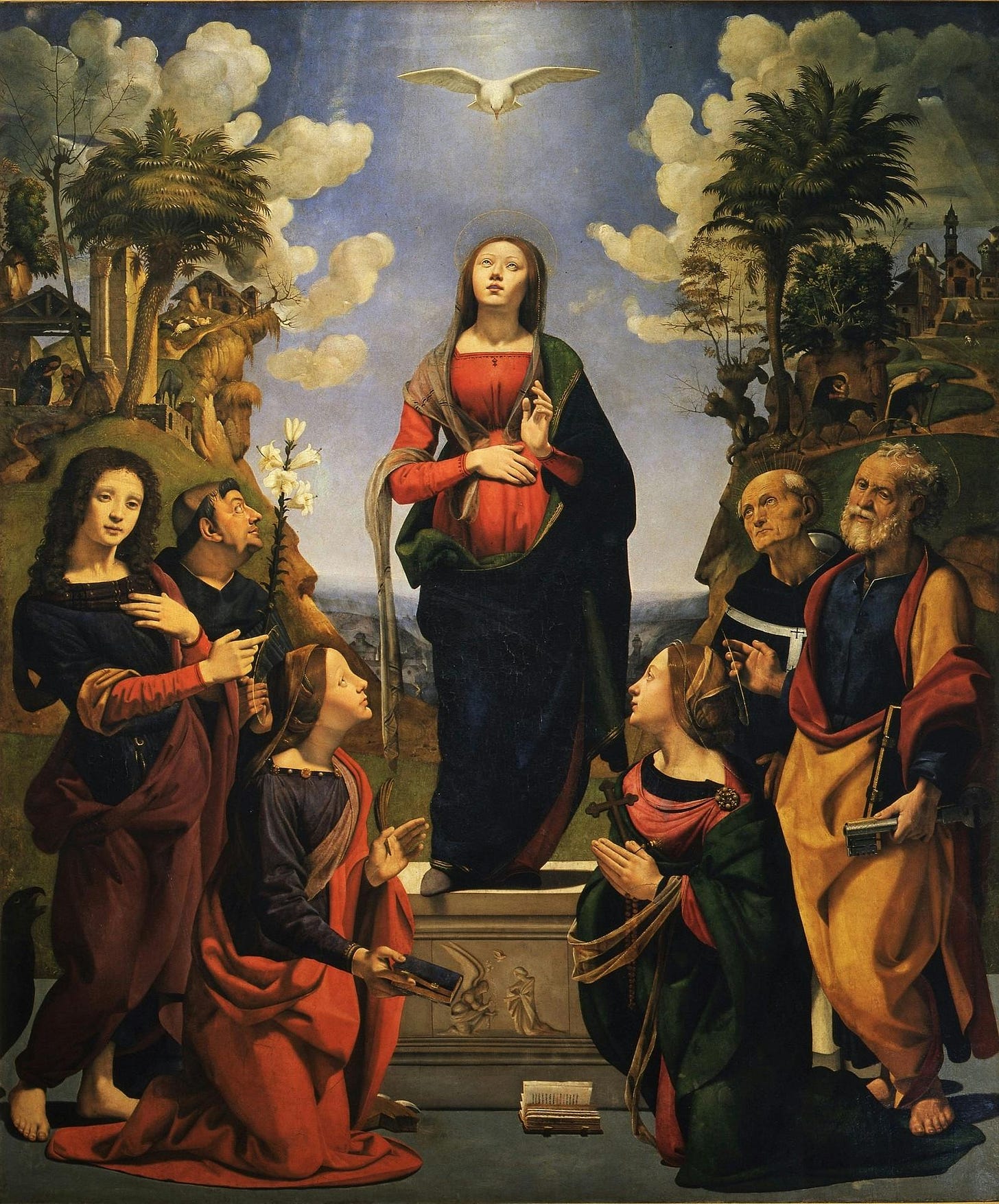“How Christianity Shaped Art”

Originally published on the author’s Substack
Incarnation and culture

Christianity began as an obscure religion in a remote strip of land in the ancient world. Within 300 years, it was the official religion of the world’s most powerful empire.
But it wasn’t Christianity’s political power that changed the world. It was a simple idea: the Incarnation.
The doctrine that Jesus is simultaneously both fully man and fully God might seem confusing at first. However, it was an idea powerful enough to reshape not just art, but every aspect of human culture — and for that reason alone, it’s worth investigating.
Here’s how the concept of the Incarnation shaped the history of culture, and why it’s still the foundation of great art today…
God With Us

The Bible states that when an angel prophesied the birth of Jesus, he proclaimed that Christ would be called Emmanuel, which means “God with us.” While most religions grapple with the problem of a divine being distant from humanity, Christianity addresses this issue with its foundational belief, the Incarnation.
The understanding is that by taking on flesh (the literal meaning of “incarnate”), God embraces the human experience — he’s no longer far-off from human life, but, in the words of Augustine, is “closer to us than we are to ourselves.”

Most shockingly, this union with God doesn’t exclude the body. While many philosophies frame existence as a struggle of the interior soul or spiritual self against the constraints of a clumsy material body, Christ’s human life included a human body — which means that the physical world plays a role in our path to God, too.
The Bodiless Soul
If the Christian idea of an union between body and soul is unique among religions, then history provides a plethora of examples of non-incarnational cultures.
These fall, roughly, into two groups: those that emphasize the soul over the body, and those that emphasize physical life to the exclusion of the spiritual.
The first category is historically the most common, and the first-century Judeo-Christian sect of Gnosticism falls into this category. Gnostics believed that the soul was pure while physical matter was evil, so they practiced a strict code of physical asceticism, eschewing as much physical comfort and pleasure as possible.

Whereas Christianity taught that procreation, eating, and beautiful objects were gifts of God that reflected His divine life, Gnostics rejected them as a stain on the purity of the soul.
While explicitly gnostic cultures have largely faded into the sands of time, gnosticism is in many ways making a comeback in today’s world, specifically in the realm of technology. Social media, video calls, and virtual reality all make it easy to emphasize the non-physical (read: digital) reality over the physical, embodied one.
In other words, “technological gnosticism” is what you have when people prioritize what happens in the digital world over what happens in the real one.
The Soulless Body
On the opposing side of gnosticism lies a culture that promotes the body over the spirit.
Since it has no conviction of the need for spiritual ennoblement, it creates architecture built for practicality rather than transcendence. It churns out mass-produced goods with no value for human creativity, and is unlikely to invest time in human rest or leisure — because that’s time that could be spent achieving practical ends.

Eventually, such a culture loses interest in helping its citizens thrive, and begins to encroach on personal rights in the name of a higher value — namely, a commercial one. By placing the material over the immaterial, this type of society embraces efficiency, profit, and power as a guiding principle — and it builds skyscrapers and factories as temples to these gods.
This description of society fits modern history depressingly well, and its most vivid manifestation was arguably found in the explicitly atheist Communist regime of the USSR. However, a softer, more comfortable version is visible in modern America.
Secularism and materialism disregard man’s need for spiritual fulfillment, and profit-driven “practicality” hinders any attempt at creating beautiful art, architecture, or things that last.
CONTINUE READING
__________
Follow DailyClout on Rumble! https://rumble.com/user/DailyClout
Please Support Our Sponsors
Birch Gold Group: A Gold IRA from Birch Gold Group is the ultimate inflation hedge for your savings in uncertain times. To see how to protect your IRA or 401(k), get your FREE info kit on gold by texting the word “DAILYCLOUT” to 989898
The Wellness Company: https://dailyclouthealth.com
Use code DAILYCLOUT for 10% off!
NativePath: Collagen supplements help you replace what you stop producing — and the studies speak for themselves. Visit https://getnativepath.com/dailyclout for a MASSIVE 45% discount plus free shipping!
BiOptimizers: Over 75% of the population is magnesium deficient. Nurture your mind and body with this all-natural, full-spectrum magnesium supplement. Go to bioptimizers.com/dailyclout and use promo code DAILYCLOUT for 10% off!
Order ‘The Pfizer Papers’ and Support Our Historic Work: https://www.skyhorsepublishing.com/9781648210372/the-pfizer-papers/
Discover LegiSector! Stay up-to-date on issues you care about with LegiSector’s state-of-the-art summarizing capabilities and customizable portals. No researchers needed, no lobbyists, no spin. Legislation at your fingertips! Learn more at https://www.legisector.com/
Blackout Coffee works with local co-ops and farmers to grow high-quality, delicious coffee beans. Blackout Coffee gives back to our military by sending donated coffee care packages to deployed troops. https://www.blackoutcoffee.com?p=Ojfj-vgRX or use promo code DAILYCLOUT20 at checkout.




